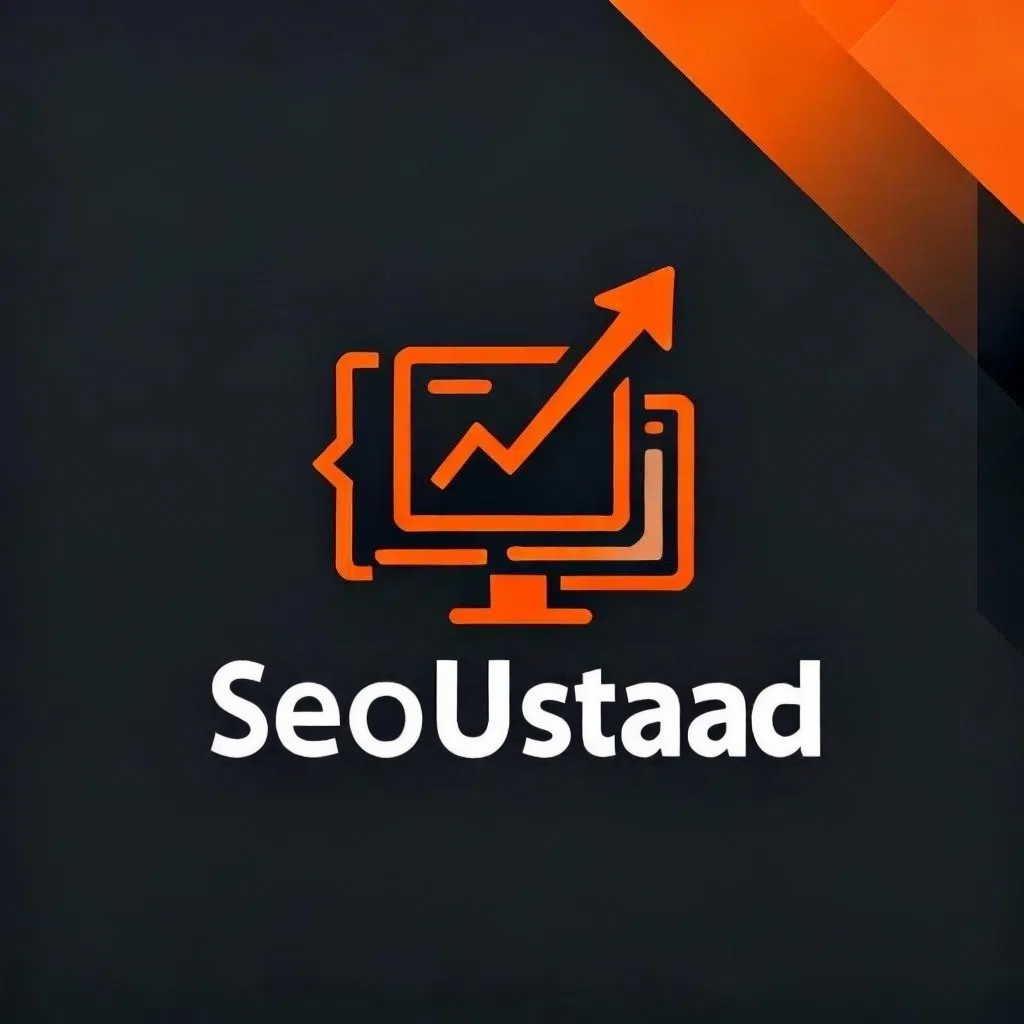5 Common SEO Mistakes That Pakistani Businesses Make (and How to Fix Them)
In Pakistan's rapidly growing digital marketplace, having an online presence is no longer optional—it's essential. However, simply having a website is not enough. To attract customers and grow your business, you need to be visible on search engines like Google. This is where Search Engine Optimization (SEO) comes in. Unfortunately, many Pakistani businesses make critical SEO mistakes that render their websites almost invisible. This comprehensive guide will explore the **5 common SEO mistakes that Pakistani businesses make (and how to fix them)**, providing a helpful list of common SEO errors and how to correct them to improve your rankings, traffic, and sales.
Mistake #1: Ignoring Hyper-Local SEO & Google Business Profile
One of the most significant SEO mistakes Pakistani businesses make is underestimating the power of local search. You might have the best biryani in Karachi or offer the finest tailoring in Lahore, but if your business doesn’t appear in "near me" searches or for city-specific queries, you're losing out on your most valuable customers. [5] Many businesses either don't have a Google Business Profile (GBP) or have left it unoptimized, which is a massive missed opportunity for free visibility on Google Search and Maps.
How to Fix It: Master Your Local Domain
- Create and Fully Optimize Your Google Business Profile: This is non-negotiable. Claim your free profile on Google and fill out every single section: business name, address, phone number, hours, services, products, and a detailed description with keywords like "best leather jackets in Sialkot."
- Gather Local Reviews: Actively encourage your satisfied customers to leave reviews on your GBP. Positive reviews are a powerful ranking signal and build trust with potential customers. [5]
- Create Location-Specific Landing Pages: If you serve multiple cities, create dedicated pages on your website for each location (e.g., `yourwebsite.com/services-islamabad`). Optimize these pages with local keywords and information. [2]
- Ensure NAP Consistency: Your Business Name, Address, and Phone number (NAP) must be consistent across your website, GBP, and any other local directories. Inconsistencies can confuse search engines and harm your local ranking.
Mistake #2: Neglecting Localized Keyword Research (Urdu & Roman Urdu)
Many businesses conduct keyword research but limit themselves to English terms. This is a classic example of not understanding the local audience. A large portion of the Pakistani population searches using Roman Urdu (e.g., "kapray online") or native Urdu script. By ignoring these linguistic nuances, you are alienating a huge segment of your potential market. Making assumptions about keywords instead of using data is a common SEO mistake that leads to targeting terms your customers never use.
How to Fix It: Speak Your Customer's Language
- Use Keyword Research Tools: Utilize tools like Google Keyword Planner, Ahrefs, or SEMrush to discover how your customers are searching. Look for variations in English, Urdu, and Roman Urdu.
- Analyze Search Intent: Understand what the user wants when they type a query. Are they looking to buy ("buy mobile phone"), learn ("best mobile phone reviews"), or find a location ("mobile phone shop near me")? Tailor your content to match this intent.
- Integrate Keywords Naturally: Once you have your list of localized keywords, weave them into your website's content, including page titles, headings, product descriptions, and blog posts. Avoid "keyword stuffing," as it can lead to penalties.
Mistake #3: Publishing Thin, Non-Localized Content
Content is king, but not all content is created equal. A common SEO mistake among Pakistani businesses is creating "thin" content—pages with very little text, copied descriptions, or generic blog posts that provide no real value. [2] Google prioritizes useful, original, and in-depth content that answers a user's query comprehensively. Content that isn’t culturally or locally relevant will fail to connect with a Pakistani audience and, consequently, fail to rank.
How to Fix It: Become a Content Powerhouse
- Focus on Value and Depth: Instead of writing a 300-word blog post, aim for comprehensive guides (like this one!) of 1500 words or more that cover a topic in detail. For product pages, go beyond the manufacturer's description. Explain the benefits, use cases, and why it's a good fit for a local customer.
- Localize Your Content: Create content that resonates with the local culture. For example, a fashion brand could write about "Eid outfit ideas" or "What to wear for a winter wedding in Lahore." This shows both users and search engines that you are relevant to the Pakistani market.
- Use a Variety of Content Formats: Don't just stick to text. Incorporate high-quality images, videos, infographics, and customer testimonials to make your content more engaging and shareable.
Mistake #4: Disregarding Mobile-First & Core Web Vitals
Over 70% of internet traffic in Pakistan comes from mobile devices. [5] Despite this, many businesses have websites that are not optimized for mobile phones. They load slowly, are difficult to navigate on a small screen, and provide a frustrating user experience. Google uses "mobile-first indexing," meaning it primarily uses the mobile version of your site for ranking. [2] Ignoring mobile performance and Core Web Vitals (Google's metrics for user experience) is one of the most damaging **5 common SEO mistakes that Pakistani businesses make (and how to fix them)**.
How to Fix It: Prioritize the Mobile Experience
- Implement Responsive Design: Ensure your website's layout automatically adjusts to fit any screen size, from a large desktop monitor to a small smartphone.
- Optimize for Speed: Use Google's PageSpeed Insights tool to test your site's speed. Common fixes include compressing images (using formats like WebP), enabling browser caching, and minimizing code. A fast-loading site is crucial for retaining visitors.
-
Focus on Core Web Vitals:
- Largest Contentful Paint (LCP): How quickly the main content of your page loads.
- First Input Delay (FID): How quickly your page responds to a user's first interaction (like a click).
- Cumulative Layout Shift (CLS): How much your page layout unexpectedly moves around during loading. Aim for good scores in all three areas.
Mistake #5: Skipping Essential Technical SEO
Technical SEO forms the foundation of your website. Many businesses overlook crucial technical elements like schema markup, internal linking, and proper URL structures. [2] Without a solid technical foundation, even the best content can fail to rank. Skipping these details is a critical SEO mistake because it prevents search engines from effectively crawling, understanding, and indexing your website's content.
How to Fix It: Build a Strong Technical Foundation
- Implement Schema Markup: Schema is a type of code that helps search engines understand your content better. It can lead to "rich snippets" in search results, such as star ratings, prices, and FAQs, which can dramatically increase your click-through rate. Use schema for your business address, products, reviews, and articles. [2]
- Build a Smart Internal Linking Structure: Internal links are links that go from one page on your website to another. A strong internal linking strategy helps search engines discover your content and understand the relationship between different pages, passing authority throughout your site.
- Create SEO-Friendly URLs: Use short, descriptive URLs that include your primary keyword. For example, `yourwebsite.com/blog/common-seo-mistakes-pakistan` is much better than `yourwebsite.com/blog/post?id=123`. [2]
- Set Up Google Search Console: This free tool from Google is essential for monitoring your website's health. It helps you find and fix technical errors, see which keywords you're ranking for, and submit your sitemap to Google.
Conclusion: Turning Mistakes into Opportunities
Avoiding these **5 common SEO mistakes that Pakistani businesses make (and how to fix them)** is the first step towards digital success. SEO is not a one-time fix but an ongoing process of improvement and adaptation. By focusing on local SEO, understanding your audience's language, creating valuable content, prioritizing the mobile experience, and building a strong technical foundation, you can transform your website from an invisible entity into a powerful tool for attracting customers and growing your brand. Start by tackling one mistake at a time, and you'll be well on your way to climbing the search engine rankings.
Frequently Asked Questions (FAQ)
1. How long does it take to see results from SEO in Pakistan?
SEO is a long-term strategy. While you can see some initial improvements in a few weeks (like with local SEO), significant results in terms of traffic and rankings typically take 4-6 months of consistent effort. Patience and persistence are key.
2. Is SEO a one-time task?
No, SEO is an ongoing process. Search engine algorithms change, competitors update their strategies, and new keywords become relevant. Continuous monitoring, content creation, and optimization are necessary to maintain and improve your rankings over time. [3]
3. Do I need to use Urdu keywords to rank in Pakistan?
It is highly recommended. While many users search in English, a significant portion uses Urdu and Roman Urdu. Targeting these keywords can help you reach a wider audience that your competitors might be ignoring, making it a powerful strategy for growth.
4. How important is Google My Business for a service-based business?
It is absolutely critical. For businesses that serve a specific area (like plumbers, lawyers, or restaurants), an optimized Google Business Profile is often the single most important factor for attracting local customers. It allows you to appear in Google Maps and the "local pack" in search results. [5]
5. Can I do SEO myself, or should I hire an expert?
You can start with the basics yourself, such as optimizing your Google Business Profile and creating quality content. However, the technical aspects and competitive nature of SEO often require expert knowledge. Hiring a professional or agency like SEOUstaad can save you time and help you avoid costly mistakes, leading to faster and more sustainable results.


 PKR
PKR TRY
TRY